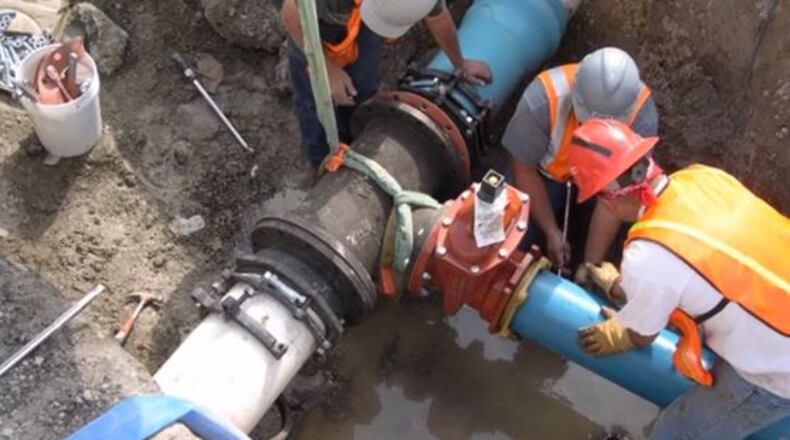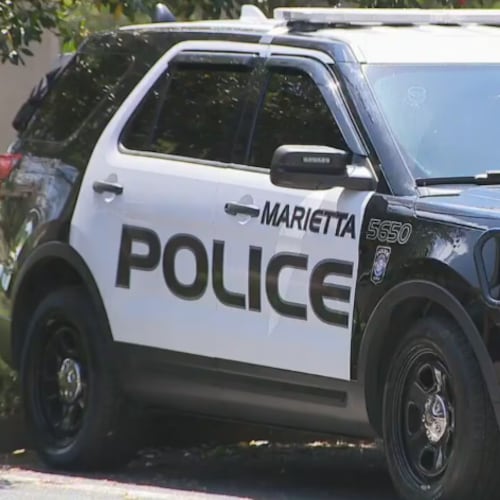DeKalb County plans to borrow about $340 million to fund its next wave of water and sewer projects, a move that CEO Michael Thurmond called a major step toward “redefining DeKalb’s future.”
County commissioners greenlighted the loans after a lengthy, sometimes contentious discussion during their Tuesday morning meeting.
“The future is so dependent on having a high-quality water and sewer system. And that’s what this investment will continue to address,” Thurmond said. “It’s a long journey, but we’re making progress.”
The bulk of the money — $265 million — will be borrowed through the federal Water Infrastructure and Finance Innovation Act. The current interest rate for that 40-year loan is around 1.3%, a figure that could fluctuate some before documents are executed next month.
Additional loans of $50 million and $25 million are expected to be secured through the Georgia Environmental Finance Authority.
The plan is for much of the money to be spent on repairs to DeKalb’s spill-prone sewer system, which has sent millions of gallons of untreated waste into local waterways this year alone. Targeted projects will include those tied to the consent decree DeKalb entered with state and federal environmental regulators in 2011.
The original deadline for that agreement — which mandates the county make sewer repairs, reduce spills and comply with the federal Clean Water Act — passed in June. The county has made progress under the Thurmond administration but is still years away from any version of compliance.
A modified consent decree is currently being negotiated.
Officials said other portions of the loan money will be spent to address DeKalb’s separate water system, which has had plenty of issues of its own.
Some of the county’s water mains — like those currently being replaced along Briarcliff Road — are more than 100 years old. Others date to around World War II.
Thurmond said the county is also still replacing more than 100,000 old or defective water meters, as well as smoothing out a billing process that for years has produced astronomical and erroneous charges for local residents.
“In many ways,” Commissioner Lorraine Cochran-Johnson said, “we aren’t in a position to not move forward.”
Cochran-Johnson and four of her colleagues voted in favor of the loans on Tuesday. The other two commissioners — Kathie Gannon and Nancy Jester — abstained from the vote.
Both said they didn’t have enough information to make a decision one way or another. They said they didn’t get some of the detailed information they requested until late last week.
“It is just unconscionable that we have just been given this data dump on Friday and are expected to raise our hand on this,” Jester said. “I can’t in good conscience vote yes or no.”
Much of Tuesday’s discussion surrounded what taking on more debt could mean for residents and business owners who rely on the county for water and sewer service.
At some point, a rate increase will be necessary to help cover the cost of maintenance and repairs to the systems. But Thurmond said he won’t be proposing or supporting such a hike in the immediate future.
“Unless and until we have a system that is accurate and efficient, we’re not going to go to consumers or ratepayers asking for an increase,” he said. “We’ve got to get this system so it’s not an embarrassment, so people can feel comfortable that they’re getting accurate bills and clean drinkable water.”
About the Author
Keep Reading
The Latest
Featured




